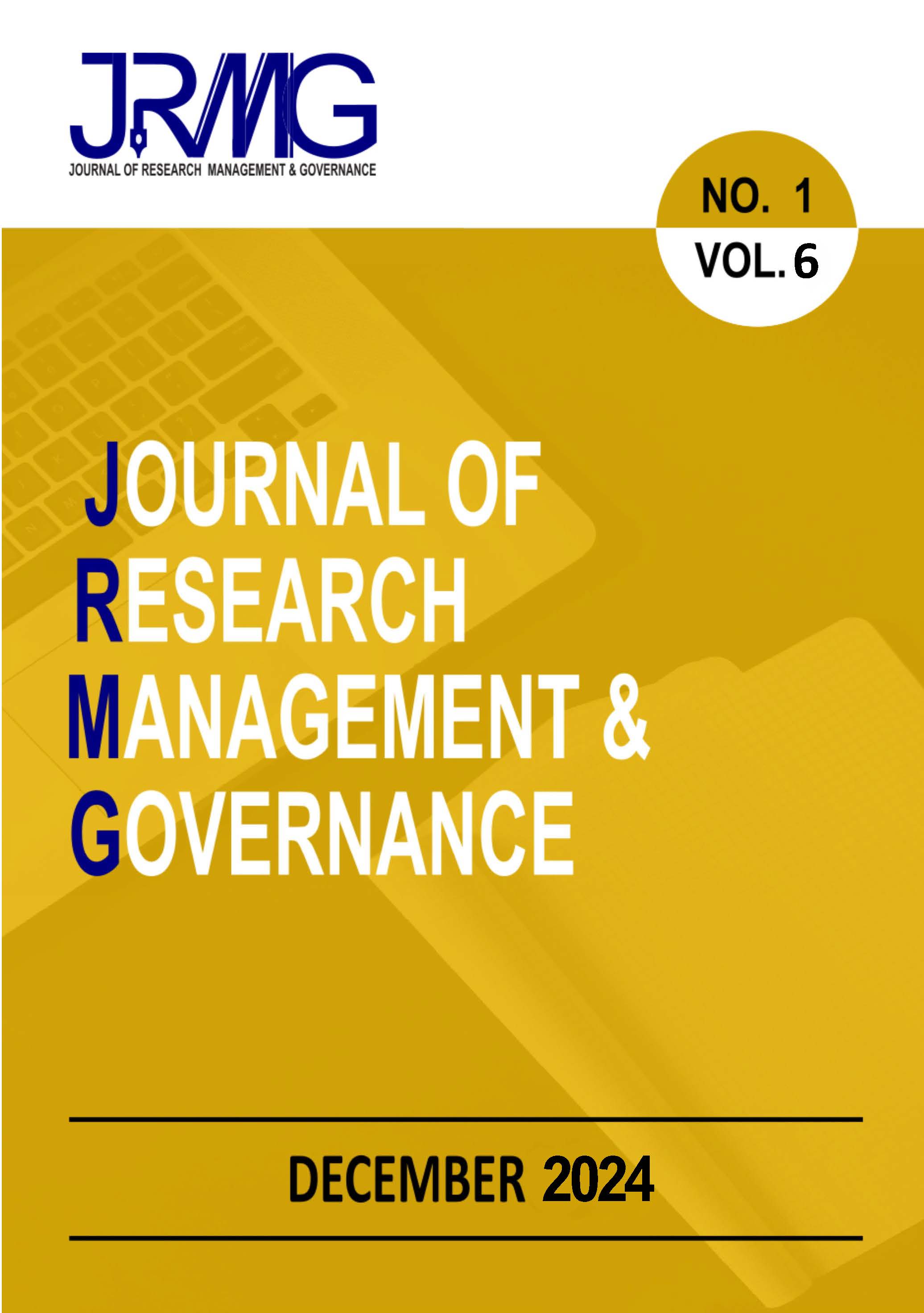Reshaping Research Ecosystems: Recommendations for Equitable Recognition of Non-STEM Research in Higher Institution Management
Main Article Content
Abstract
Historically, the trend in academia towards measurable measures has marginalised non-STEM, arts, and humanities subjects, often at the price of their inherent academic principles and capabilities. This review of the literature explores the shift in university policies and practises, emphasising the need for a more compassionate and inclusive approach to research administration. This study analyses a variety of scientific articles using an extensive keyword search on Lens.org to evaluate the obstacles and recommendations for equal career progression in non-STEM disciplines. The findings indicate a rising appreciation for the multifaceted nature of knowledge and the significance of varied academic contributions. The study highlights the importance of widening the concept of research impact, including qualitative evaluations, and embracing interdisciplinary approaches. It also discusses the impact of university rankings and the incorporation of SDGs in reframing the value of non-STEM disciplines. In addition, the study suggests practical methods for university administrators, such as the creation of customised appraisal forms, customised career trajectories, and equal resource allocation. The study finishes by considering the future role of the arts and humanities in an increasingly automated and technologically driven world, emphasising the relevance of human values and ethical considerations in societal growth. This study adds to the discussion about developing a balanced and human-centred approach to research management, calling for the recognition and support of all academic disciplines in the changing landscape of higher education.
Downloads
Article Details

This work is licensed under a Creative Commons Attribution-NoDerivatives 4.0 International License.
Articles submitted to the journal should not have been published before in their current or substantially similar form, or be under consideration for publication elsewhere. Authors submitting articles for publication warrant that the work is not an infringement of any existing copyright and will indemnify the publisher against any breach of such warranty. For ease of dissemination and to ensure proper policing of use, papers and contributions become the legal copyright of the publisher unless otherwise agreed. By submitting a manuscript, the author(s) agree that copyright for the article is transferred to the publisher, if and when the manuscript is accepted for publication. However, it can be reprinted with a proper acknowledgement that it was published in JRMG.

This work is licensed under a Creative Commons Attribution-NonCommercial-NoDerivatives 4.0 International License.
